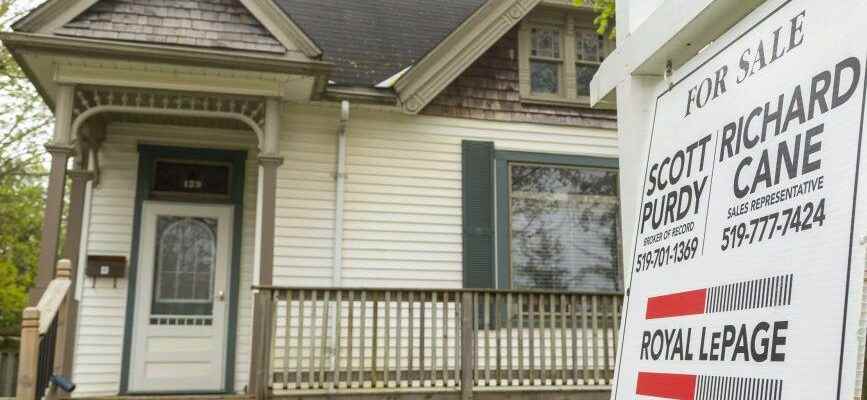The average resale price of homes in London could reach $900,000 by the end of the year, even with prices expected to grow at a slower pace than the national average, a new forecast suggests.
Industry giant Royal Lepage is projecting average selling prices in Canada will rise another 15 per cent by the last quarter of 2022, up from the 10.5 per cent it had predicted initially.
“The previous forecast, released in December 2021, has been revised upward to reflect the continued strength of the market through the first quarter of the year,” the company said.
The rise in selling price in London could be lower than the national average – forecast between 7.5 and 10 per cent — but still enough to push selling prices close to the $900,000 mark, said Adam Miller, a London-area broker manager at Royal Lepage.
“We’ve been sort of chugging along pretty close to the national average, so that (15 per cent rise) I think it’s a point of reference” for London, he said.
“I would think we’d probably be seeing a 7.5 to 10 per cent increase, somewhere in that range, but 15 per cent is not out of bounds on what (the market) could do.”
The average selling price of homes listed in the London area reached a record $825,000 in February, a year-over-year increase of nearly 30 per cent, before dipping by less than $2,000 last month.
At that price, and with a down payment of 10 per cent, mortgage payments for a first-time homebuyer would be about $3,800 a month.
“It looks like a ridiculous number to a lot of long-term Londoners, but from the outside . . . looking in, people think it’s pretty reasonable,” Miller said about London home prices that remain lower than communities closer to the Greater Toronto Area.
“I think there would be a lot more concern in our marketplace, if we were an anomaly or no one else was growing like this but, really, we’re not out of bounds with any other market. We’re right there along with sort of the Kitchener-Waterloo, Guelph regions,” Miller said.
Miller said if London selling prices grew by the most conservative scenario of 7.5 per cent, that’s still nearly double the historical rate of four per cent London experienced for the past several decades.
“London had experienced sort of the slow and steady growth that it’s used to, and in the last two and a half years, it grew up half a decade,” he said.
“A five per cent growth was kind of a big growth.”
As it is the case nationally, the main driver behind the rise in home prices is tight supply that is nowhere near to meeting supply.
Even the recent interest rate increase by the Bank of Canada will have a moderate effect on prices, experts said.
“The interest rates will have some effect, but they won’t be felt immediately and the underlying challenge at the moment is just such a huge demand for such little inventory,” said Randy Pawlowski, president of the London and St. Thomas Association of Realtors (LSTAR).
It will be a similar story for the recently announced move by the Ontario government to give property sellers the option of having an open or blind bidding process.
“Making (bid disclosure) optional for sellers doesn’t make sense,” said Sung Lee, a mortgage expert with Ratesdotca.
“Blind bidding benefits sellers, not buyers. If the goal is to create transparency, this should be mandatory.”
With Canadian Press files
Twitter.com/JuhaatLFPress
